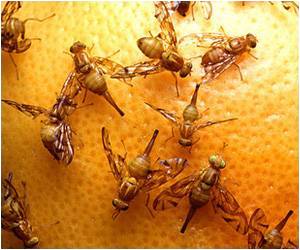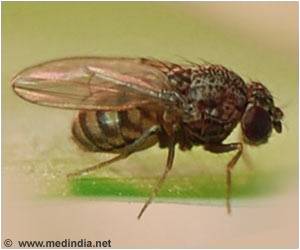At the University of Michigan Life Sciences Institute researchers have discovered why cold-blooded animals, such as worms, flies and fish live longer in cold environments.

"This raises the intriguing possibility that exposure to cold air-or pharmacological stimulation of the cold-sensitive genetic program-may promote longevity in mammals," said Shawn Xu, LSI faculty member and the Bernard W. Agranoff Collegiate Professor in the Life Sciences at the U-M Medical School.
Scientists had long assumed that animals live longer in cold environments because of a passive thermodynamic process, reasoning that low temperatures reduce the rate of chemical reactions and thereby slow the rate of aging.
"But now, at least in roundworms, the extended lifespan observed at low temperature cannot be simply explained by a reduced rate of chemical reactions. It’s, in fact, an active process that is regulated by genes," Xu said.
Xu found that cold air activates a receptor known as the TRPA1 channel, found in nerve and fat cells in nematodes, and TRPA1 then passes calcium into cells. The resulting chain of signaling ultimately reaches DAF-16/FOXO, a gene associated with longevity. Mutant worms that lacked TRPA1 had shorter life spans at lower temperatures.
Xu added that in addition to cool temperatures, the spicy condiment wasabi activates TRPA1 as well, and that feeding wasabi to nematodes increases their life spans.
The research was published online in the journal Cell.
Source-ANI
 MEDINDIA
MEDINDIA




 Email
Email




